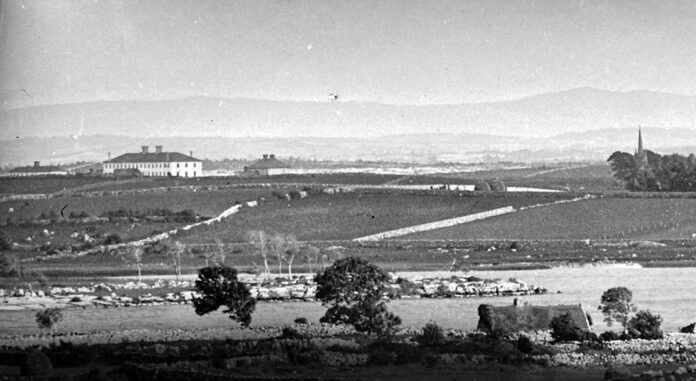Paul Minihan gives the background on the centenary of a significant action from the Civil War in Clare
FROM July 1 to 25, 1922, Corofin was the focal point of the Civil War in Clare.
In 1922, the Clare Brigades of East-Clare, Mid-Clare and West-Clare formed part of the 1st Western Division, that also comprised the South-East Galway, and South-West Galway Brigades. This latter Brigade included the city.
In the wake of the Treaty, the IRA slowly began to rupture throughout the spring of 1922.
On the eve of the Civil War, there were two opposing 1st Western Divisions – one Pro-Treaty or ‘Free State’, under Michael Brennan, and one Anti-Treaty or ‘Republican’, under Frank Barrett, former O/C of the Mid-Clare Brigade.
As the British Army withdrew from various barracks from January to May 1922, many of these were occupied by the IRA – in some cases Pro, in some cases Anti-Treaty.
In Ennis, Republican troops had occupied the main ex-RIC Barracks (now Garda station). However, with the outbreak of war, they realised that it was impossible to hold due to its exposed position, and it was evacuated on July 1, together with large quantities of munitions.
In the preceding months, the Republicans had also occupied the RIC Barracks at Corofin.
This was one of the principal fortified strongholds of the RIC in Clare during the War of Independence.
Also, at Corofin was a workhouse, a sprawling 19th Century building that dominated the village. During the War of Independence, this was also fortified and occupied by 2nd Battalion, Royal Scots, and later, G Company, Auxiliaries.
Following their withdrawal from Ennis and for most of July, the operational headquarters of the 1st Western Division (Anti-Treaty or Republican) IRA was at the Workhouse at Corofin.
Roadblocks and checkpoints were established at the approach roads and bridges were destroyed. Troops arrived from across the Division as did experts from Kerry and Limerick to train the local brigades in engineering and munitions.
During these weeks, munitions and shells were manufactured, landmines filled, firearms repaired, vehicles were armoured, while captured engineering materials were sent there from brigades.
From Corofin, dispatches were sent and received throughout the day by motorcycle and bicycle to and from brigade and battalion officers across the Division; to and from other Divisions and GHQ.
Moreover, in addition to being the Headquarters of the 1st Western Division, it was also the Headquarters of the Mid-Clare Brigade, IRA, by this time under the command of Sean O’Keeffe.
The fall of Limerick to the Free State army, freed up additional troops to engage Republican forces in Clare.
Newspapers conveyed reports that Corofin was to be the “battleground for Clare”.
Republican intelligence was that the Free State army was planning a large convergence of troops on their positions.
The Free State had access to modern weaponry, importantly artillery, and the Workhouse was very vulnerable to artillery fire from positions in Killeen – across Lough Atedaun.
Viewing their position as impossible, the Workhouse was evacuated.
To deny its use to the Free State army, it was destroyed on orders of John Minihan, Divisional Quartermaster and Director of Special Services, 1st Western Division IRA, on July 25, 1922.

